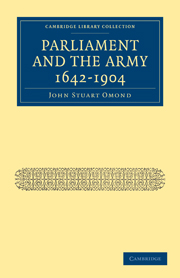Summary
The preservation of internal order and the prevention of foreign encroachment are among the principal duties of all governments. If these duties are to be carried out, if domestic peace and freedom from invasion are to be vouchsafed to a country, its government must be prepared to maintain an armed force of some sort. It must be ready to expend the lives of its citizens and its treasure in their fulfilment. The weapons which have been wielded from time immemorial in so doing have been the armed forces of the different nations of the world. The raising of armies in the past for aggression against foreign states has been an easy matter. The call to citizens to rally to the defence of the fatherland has met with patriotic response. The creation of armies in face of national peril has presented no difficulties to governments. The defenders of Thermopylae and the soldiers of the first republican armies of France are examples of the spirit which actuates nations in time of difficulty. It is easy for governments to control these armed forces in times of actual conflict, but the task of determining their position in relation to the rest of the State in times of peace has taxed the ingenuity of statesmen and philosophers to its utmost throughout the ages. Kings and emperors, writers and politicians, rulers and ruled, have all wrestled with the thorny problem of the relationship which should exist between the majority of the population of the State and a number of men who, by the nature of their calling, must lead, as Plato pointed out, a life somewhat apart from that of their fellow citizens.
- Type
- Chapter
- Information
- Parliament and the Army 1642–1904 , pp. 1 - 24Publisher: Cambridge University PressPrint publication year: 2009First published in: 1933



